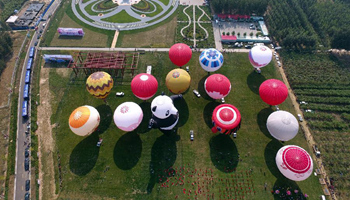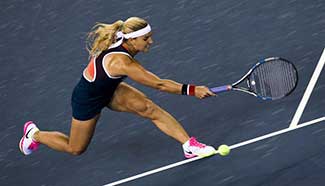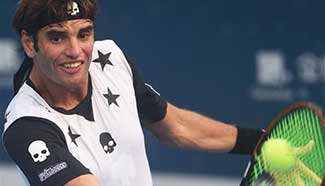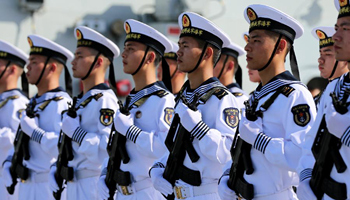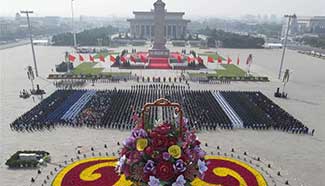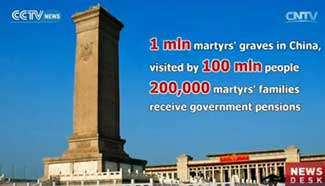UNITED NATIONS, Sept. 30 (Xinhua) -- The president of the UN General Assembly, Peter Thomson, said on Friday that "next week is the critical one" for selection of a candidate by members the UN Security Council to replace retiring Secretary-General Ban Ki-moon.
"Wednesday next week is the critical one," Thomson told reporters here, adding that on Monday the latest candidate to enter the race, Kirstalina Georgieva of Bulgaria, will be interviewed for two hours by members of the 193-member General Assembly.
"We will follow exactly the same format that all the other candidates received, so there is no unfair advantage to anybody," he said at a press conference here after explaining he is "merely acting as a referee in the process."
All candidates -- originally there were 12 -- were each interviewed for two hours by members of the assembly, the most representative body in the world organization, with 193 member states.
The interview is part of the General Assembly's efforts to make the selection process transparent.
"The important day here is Wednesday because that's when you'll see the colored ballots being used for the first time and we'll have a clearer idea about whether this is a longer process or a shorter process," Thomson said.
He was referring to the next secret, informal Security Council straw poll when the permanent five (P5) members of the Security Council, veto-wielders Britain, China, France, Russia and the United States get ballots of a different hue from the 10 elected members.
To date Antonio Guterres, former prime minister of Portugal and former head of the UN Refugee Agency, has led those polls.
When asked if he had an inside information or a favorite in the contest and Thomson said he did not.
"It's like asking the referee for the game between West Ham (United) and Arsenal before the game, 'who've you got your money on?'"
"My job is, obviously, just to make sure that there is an absolutely level playing field, that all candidates are given equal consideration without any advantages to any of them and that's my only role, in fact," Thomson said.
"When asked 'what deals' I am not interested. All I'm really interested in is watching the results and then taking it on from there."
"The basic rule is we are searching for new secretary-general; the best available, that's what this process is all about, obviously," he said. "Rules have been set up very clearly."
In a July explanatory letter from the Security Council on those rules, Thomson said there was one thing underlined, "applications can be received right up to the date of appointment of the next secretary-general. We've always had an open mind about the fact that there might be latecomers."
The UN Charter says only "The secretary-general shall be appointed by the General Assembly upon recommendation of the Security Council."
Rules for selection of a candidate from the field were established by the 15-nation council.
"If it's a longer process you'll have to get used to whether other candidates may be coming in," Thomson said. "Those are the rules of the game and you don't change the rules coming half way through the game."
Since last week, questions had arisen about Georgieva entering so late in the process and the fact that she was the second candidate recommended by the government of Bulgaria, along with Irina Bokova, head of the UN Educational and Scientific Organization (UNESCO) who has not done well in the informal straw polls.
"There is no limit on how many or whether a country can produce one or two candidates," Thomson said.
There has been a move for the next secretary-general to come from an Eastern European country because there has never been a secretary-general from that region. Likewise, there has been a strong push this year for a woman secretary-general, since there has never been one.
Ambassadors have said they would like to see a choice made for the next secretary-general by November.

